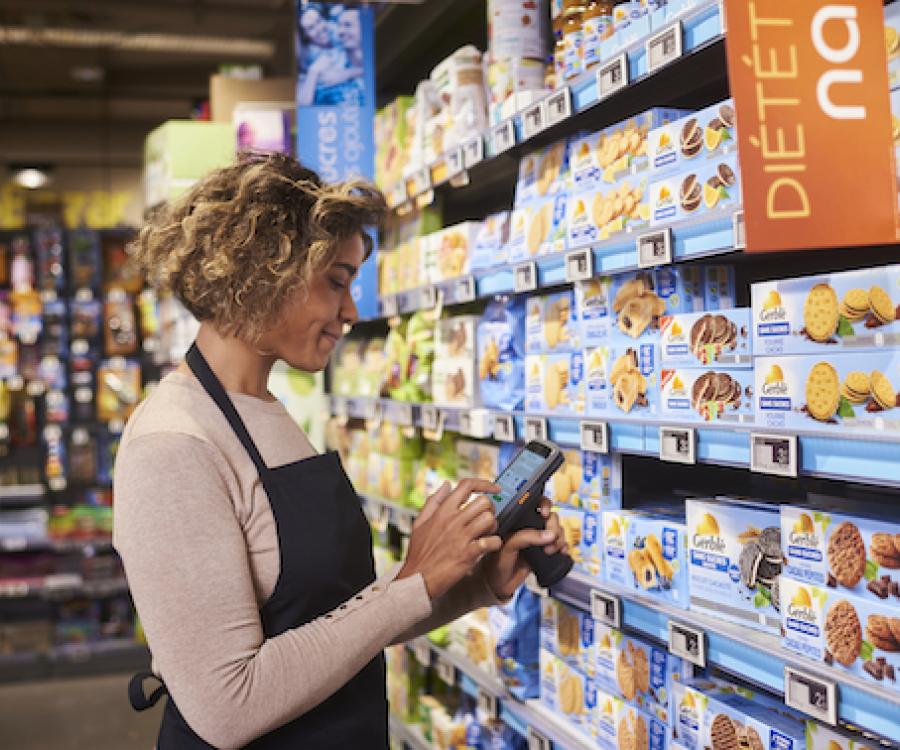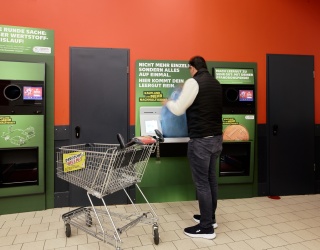“Ebay marks the end of traditional retail“ – that was the title of a manager magazine cover in 2012. It is certainly true that the increasing digitization and technologization in all business practices and various areas also strongly affect the retail sector.
Thanks to eCommerce, global players like Amazon and Ebay and the prevalence of mobile devices make every product available at any time and any place to customers. But is it true that there is no longer a place for brick-and-mortar retail- your classic retail stores- in the retail model of the future and that established players need to close their stores? I would like to say this isn’t the case.
According to current statistics, there continues to be a variety of products that customers still prefer to buy “on the spot“ versus ordering them online or buying them by mail delivery. This applies especially to food items but also clothing, drugs, home improvement products or higher priced products like furniture, jewelry or watches.

The logical conclusion is that despite the diverse choices that are available in eCommerce – Amazon already offers a multitude of (non-perishable) food items – classic retail will continue to have its place.
In times of multichannel and omnichannel, intelligent networks and ubiquitous data acquisition, many retailers are now inevitably confronted with the decision of whether their business should have a global or local focus in the future.
This doesn’t just apply to sales which increasingly gain “globality“, especially thanks to online stores, but also the procurement of goods. Are you better off buying globally and at (for the most part) more attractive prices? Large B2B platform like the Chinese provider Alibaba, for example, offer extensive options. Or should you instead procure the items locally or regionally to realize shorter delivery routes and on-site quality control?
In addition to the mentioned criteria, a number of other factors like the perishability of foods play a crucial role in this. Even if the global supply chain has an increasing influence on the actions of companies, it doesn’t mean that only global procurement will endure in the future. Far more than a trend, these types of changes need to be regarded as (waves of) demand. Even though from the customer’s perspective, everything “must“ be available at all times, regionality – especially in the food industry – has experienced a renaissance in recent years fueled by trends like veganism and vegetarianism, health awareness and sustainability.
In contrast, a different picture emerges in consumer electronics for instance, where customers and subsequently also retailers largely rely on items from major foreign companies. These and many other product groups point out the necessary coexistence of globality and locality along the entire supply chain.
Think globally, network regionally, act locally.
This applies to both small and large companies. The adaptability of companies will be crucial in all three aspects. Companies that use the globality of the market and are able to fall back on strong regional networks and that adapt to local conditions as much as possible will be successful.
In the future, a number of new- data-driven- methods and techniques will be added to the established retail methods which aim to make this possible. Having said that, only those who know how to use them purposefully will be successful.
That’s why manual orders will continue to be side by side with fully automated processes and forecast formulas, as well as real-time inventory. Retailers will continue to order directly from wholesalers or manufacturers, and showrooms, as well as online distribution channels, will be utilized. Retail business types like warehousing and third-party transactions or systems like central billing and processing will also stand the test of time.
The world is becoming more colorful. Nothing goes away but everything is added to it.







